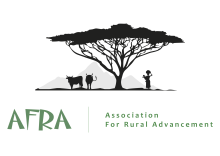Resource information
“Land registration and cadastral surveying in much of the developing world has reached a crossroads. It is not possible to continue with business as usual in the face of massive informality within the world's cities, and new more relevant approaches have to be developed”. (Fourie, 2000).
Evidence from all over Africa and indeed, the developing world, suggests that conventional land administration, based on cadastral parcels and registration through centralised titling systems, fails to deliver secure tenure to poor people or people living under customary arrangements. Poor people use other methods to secure their tenure, yet these are not fully recognised in law or in the administrative systems that underpin property. These “other” systems provide access to land to millions of people by operating in the shadows of the law.
The magnitude of this phenomenon, and the failure of registration drives to overcome it, suggests that the time has come to “step out of the box” and seek innovative tools and methods for recognising alternative land use systems in development contexts.

